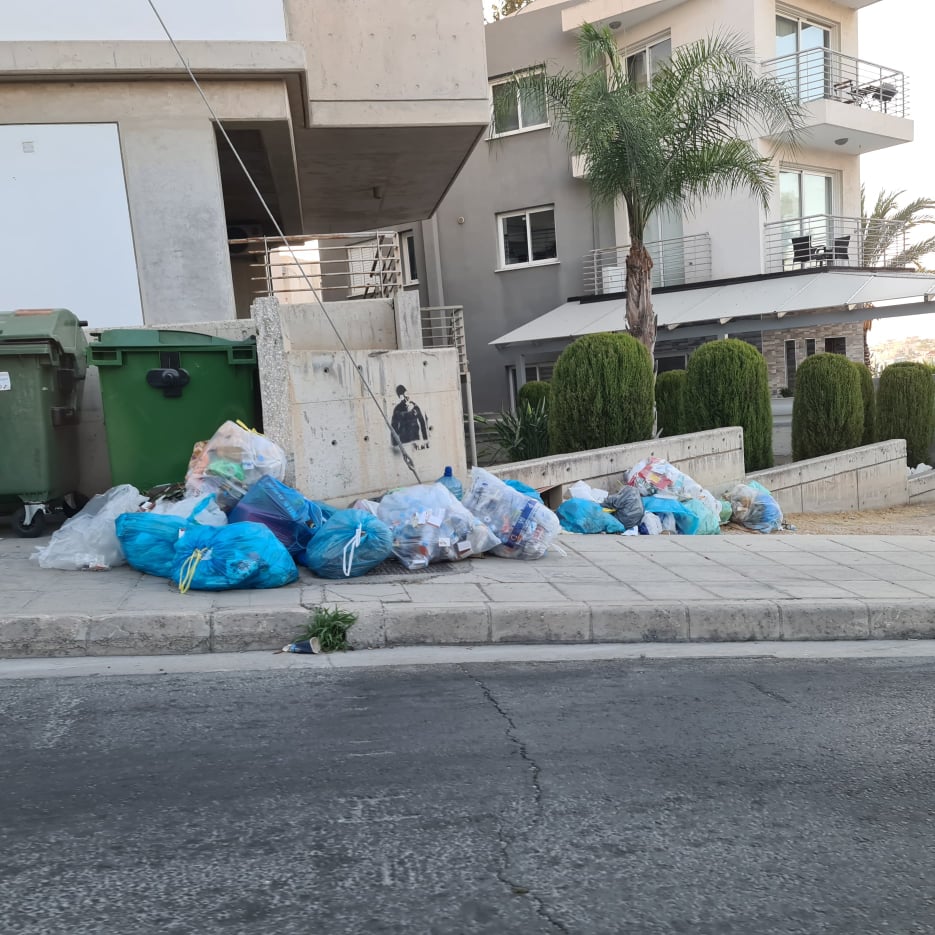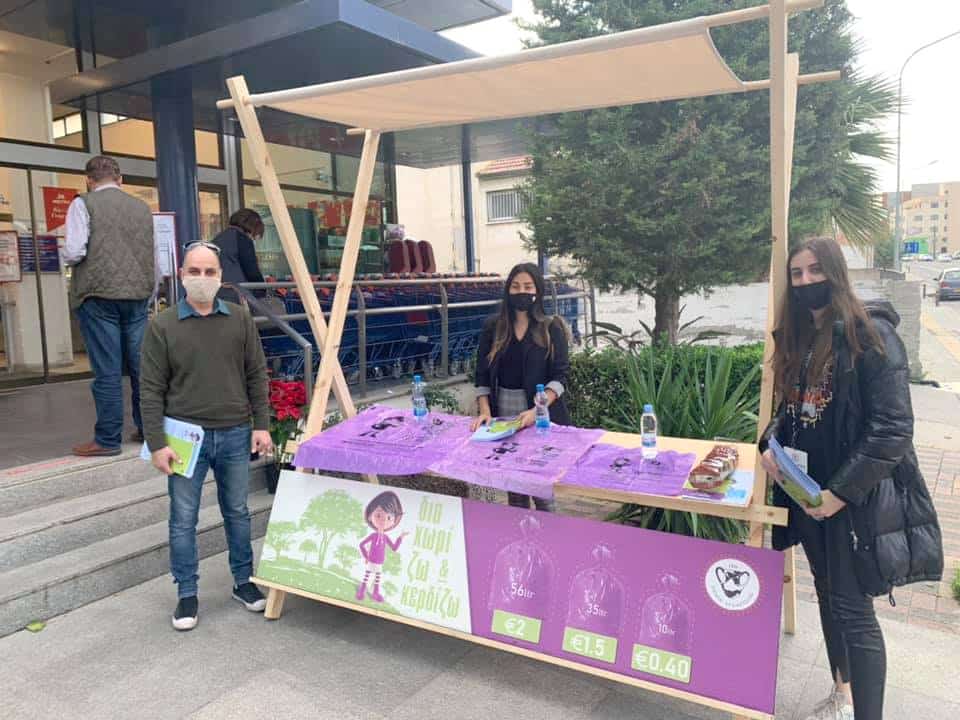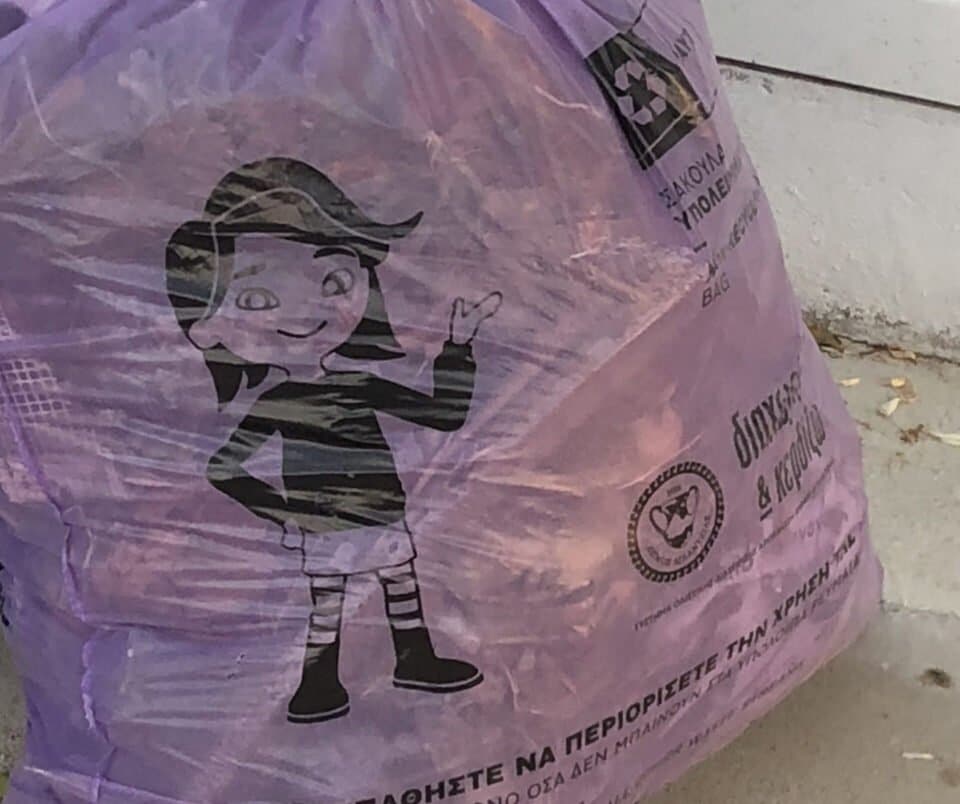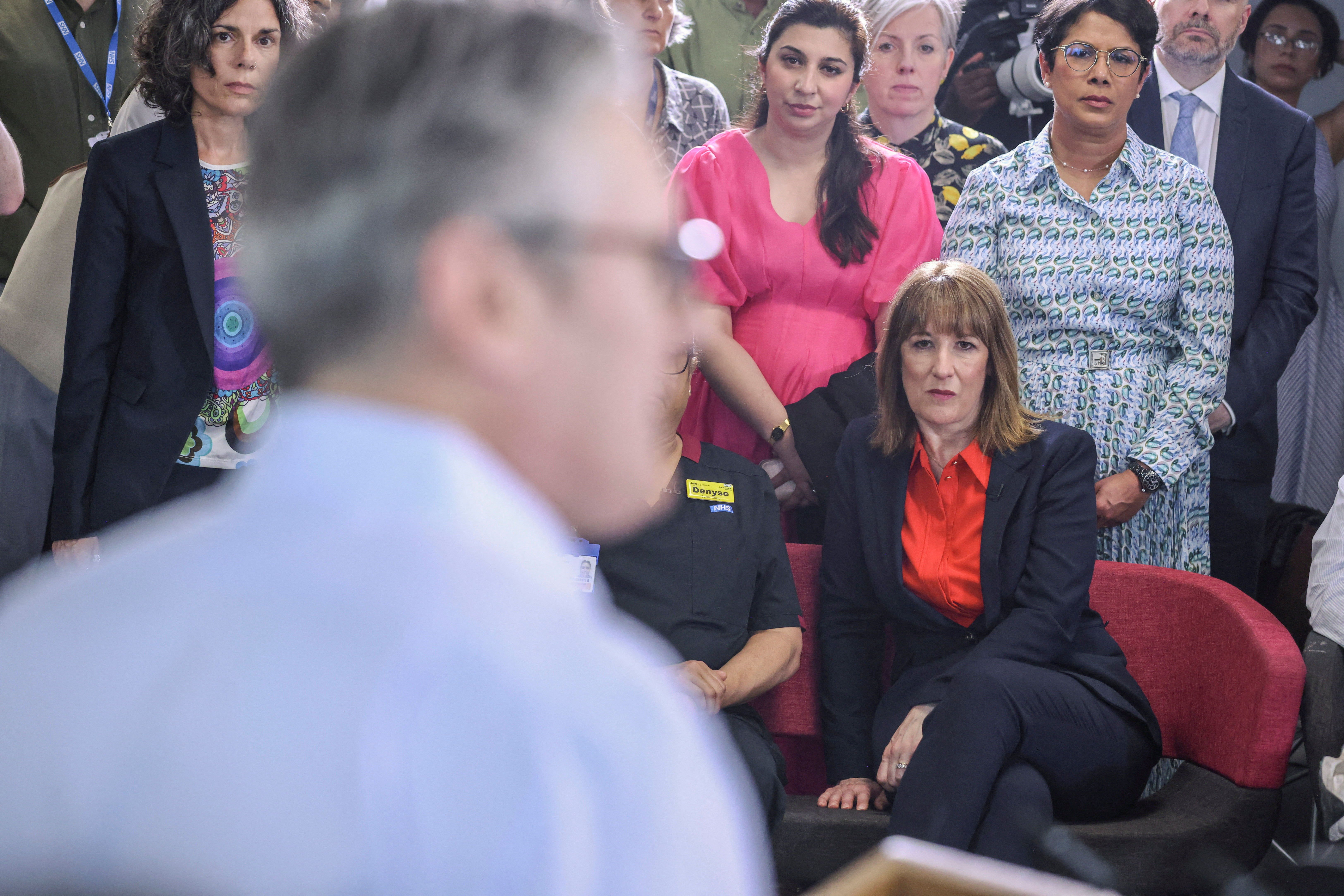Aglandjia municipality wanted to penalise woman who didn’t throw out enough trash
By Theo Panayides
Aglandjia municipality’s pace-setting ‘Pay as you throw’ scheme is the future, due to be adopted all over Cyprus by 2024. Issues persist with people trying to game the system, however, leading to occasional absurdities.
A reader contacted the Cyprus Mail to inform us that his mother – a resident of Aglandjia – had received a letter demanding, in effect, that she deliver more household waste for collection by the municipality.
The letter noted that she “put out very few of the purple bags,” said our source, “and this raised a red flag for them – because they have this problem in Aglandjia, of people going and dumping their rubbish in public spaces, or other dumpsters, or even other municipalities”.
‘Purple bags’ are the only accepted way of putting out non-recyclable trash since the system’s inception in 2021. Residents are compelled to buy the bags, which cost more than ordinary bin bags: a large bag (56 litres) costs €2, a medium-sized bag (35 litres) €1.50, and a small bag (10 litres) costs 40 cents.
This is offset by the fact that the annual charge for trash collection – currently €145 for employed singles and €185 for families in nearby Strovolos municipality – has been abolished. Everyone is charged on how much waste they actually produce, hence ‘pay as you throw’.

Aglandjia is the only municipality to have a pay as you throw scheme and that leads some residents to dump their rubbish in other municipalities
Our reader adds that the letter instructed his mother to buy €55 worth of purple bags, by way of an indirect penalty. “We explained to them that because we’re a very environmentally conscious family, we recycle everything… We compost, we zero-waste.” The reason why so few bags were being collected was that very little waste was being produced. Ironically, the family was too ‘green’ for its own good.
Fortunately, the municipality accepted this, and the matter was closed. But it’s clearly absurd that a system set up to help the environment should be threatening to fine people for not polluting enough.
The case drew an instant response from Demetra Katechaki at Aglandjia municipality. Katechaki isn’t a civil servant but an environmental specialist, brought in to help. She’s young and enthusiastic – which is important, because ‘Pay as you throw’ ambitiously aims to change people’s mentality, not just their habits. Enthusiasm is essential.
There seems to have been some confusion, she told the Cyprus Mail. What probably happened was that the garbage collectors tasked with keeping an eye on such things didn’t notice the (few) bags that our source was putting out, or thought they belonged to some other house.
Letters aren’t sent to households that produce some waste, only to those that produce none – because there is indeed a problem, as mentioned by our reader. Some residents, taking advantage of the fact that Aglandjia operates differently, don’t buy any purple bags at all, and instead discard their rubbish at their workplace or second home in another municipality.
Some even dump it in open fields, though “this has become much less common,” says Katechaki. Inspectors now patrol regularly, using CCTV with permission from homeowners who have it or sorting through any abandoned trash to identify its owners. Fly-tipping, including taking waste to another address for the purpose of dumping it, is illegal, and can carry a €200 fine.
To be fair, the problem doesn’t seem all that widespread. In 2021, when we last reported on the scheme, Aglandjia mayor Andreas Constantinou identified around 4,500 residents who weren’t fully complying. Yet, according to Katechaki, only 170 properties have been charged with trying to bypass the system, presumably including misunderstandings like our reader’s.
‘Pay as you throw’ has been carefully thought-out, with incentives and deterrents. Its great strength is that, unlike the previous system which was one-size-fits-all, it rewards good (meaning eco-friendly) habits and penalises sloppy ones. “We have families who now pay much less than they used to,” confirms Katechaki.

A promotion event for the pay-as-you-throw scheme in Aglandjia
Unfortunately, it also results in other people paying more than they used to – usually the ones who can least afford it, because they’re too busy making ends meet to worry about the environment.
As a rough ballpark figure, a family that buys one large and one medium-sized bag per week would end up paying the equivalent of the now-abolished annual charge over the course of a year. If they bought (say) three large bags, they’d end up paying almost double.
Good recycling habits help enormously, says Katechaki, “because plastic is bulky, glass is bulky”. If organic waste is also being composted, that brings the weekly volume down even further.
But consider, say, a busy family with a baby. Diapers aren’t recyclable, and could easily fill a couple of bags a week just by themselves. Food scraps are bulky too. If you’re not composting – which is hard in a flat without a garden, and quite time-consuming anyway – a single watermelon in summer can fill up half a bag.
And of course one can’t assume that people will be righteous. There will always be some who are too busy, or bolshie, or cynical to even recycle.
Again, Ms Katechaki is quick with answers. A concession (in the form of free purple bags) is available to large families, low-income pensioners and other categories. The municipality has even made a deal with a diaper company, gifting one small bag with each box of diapers. They’re willing to listen, she says, and to help those who need it.
That said, the system is vulnerable to abuse during this transitional period. What if someone were to put out just a single bag every week in Aglandjia – to deflect suspicion – and dump the rest in some random bin in Strovolos? How would authorities even know it was happening? Admittedly, that would be going to a lot of trouble to avoid what are still relatively small costs.
Until every municipality is using ‘Pay as you throw’, Aglandjia will be at a disadvantage. Whether that will actually happen as planned – and whether the scheme can flourish in less enthusiastic hands – remains to be seen.







Click here to change your cookie preferences